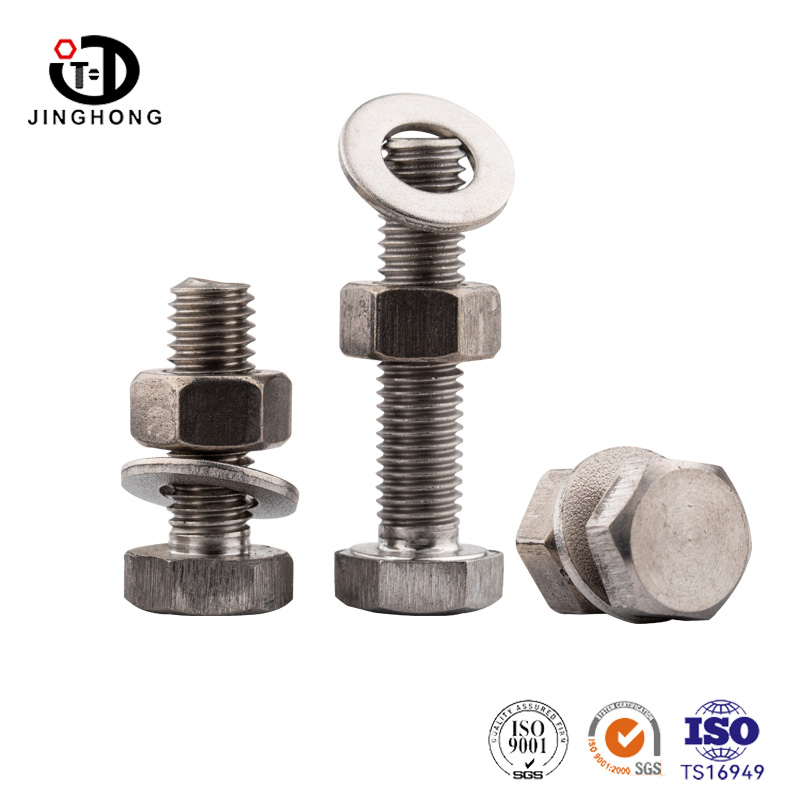Which Hex Screw Is Right for Your Project?
2025-08-13
Choosing the correct Hex Screw can make the difference between a fast, reliable assembly and a costly failure. Whether you are manufacturing precision electronics, building structural frames, or supplying replacement parts for local contractors, understanding Hex Screw types, specifications, and applications is essential for procurement teams, engineers, and purchasing managers. This article provides a professional, SEO-focused overview of Hex Screw features, technical parameters, application tips, and a practical FAQ to help you select the optimal product for your needs.
What is a Hex Screw and Why It Matters
A Hex Screw is a threaded fastener with a head shaped for a hexagonal wrench or socket. Its hex geometry provides superior torque transfer compared with slotted or Phillips heads, allowing secure clamping with lower risk of cam-out. Hex Screws come in two primary head styles: hex head bolts (fully exposed hex head for use with wrenches) and hex socket screws (internal hex / Allen head). Selection depends on access, aesthetics, torque requirements, and assembly method.
Why Hex Screws matter:
-
High torque capability reduces loosening under vibration.
-
Broad size and material choices enable use across industries (automotive, construction, electronics, furniture).
-
Readily available in metric and imperial dimensions to fit regional standards.
-
Compatible with power tools and automated assembly lines, improving installation speed and repeatability.
Technical Specifications & Product Parameters
Selecting the right Hex Screw requires clear knowledge of technical parameters. Below is a concise list of the critical product parameters we provide and control during manufacturing and inspection.
Simple Technical Table
| Parameter | Typical Options / Values |
|---|---|
| Materials | Carbon steel, Stainless steel (A2, A4), Alloy steel, Brass |
| Diameter Range | M2 – M36 (metric) |
| Length Range | 4 mm – 300 mm (standard stock) |
| Thread Standards | ISO Metric, UNC, UNF |
| Strength Grades | 4.8, 8.8, 10.9, A2-70, A4-80 |
| Surface Finishes | Plain, Zinc, Hot-dip Galv, Black Oxide, Nickel |
| Head Types | Hex head, Socket cap, Flange hex |
| Tolerances | ISO general tolerances or custom on request |
Hex Screw — FAQ
Q1: What is a Hex Screw and when should I choose it over other fasteners?
A1: A Hex Screw is a threaded fastener with a hex-shaped head or hex drive; choose it when you need higher torque transfer, reliable clamping under vibration, or compatibility with wrench/socket/Allen tools for ease of assembly.
Q2: How do I select the right material for a Hex Screw in outdoor marine environments?
A2: For marine environments select A4 stainless steel (316) or apply robust protective coatings with specified salt spray resistance, and always confirm material certificates to prevent premature corrosion.
Q3: What torque values should I use for common Hex Screw sizes?
A3: Torque depends on diameter and grade—use published torque tables for the specific material and grade, and always use calibrated tools; for example, an M8 8.8 hex bolt typical torque is around 25–30 Nm for medium preload (consult exact tables for final values).
Why Choose Our Hex Screw Solutions
Selecting a Hex Screw partner is about reliability, consistent quality, and the ability to support production demands. A robust supplier will offer:
-
Clear material traceability and certificates.
-
Consistent mechanical properties across batches.
-
Flexible finishes and custom options to match product lifecycles.
-
Responsive technical support to tailor designs for manufacturability and assembly.
When evaluating suppliers, insist on sample parts and inspection reports before approving production runs. Request reference cases or product testimonials relevant to your industry segment to validate supplier capability. For procurement or technical inquiries, contact Wenzhou City Jinghong Fasteners Co., Ltd. — our team can provide detailed drawings, sample kits, and full specification sheets tailored to your project requirements.



